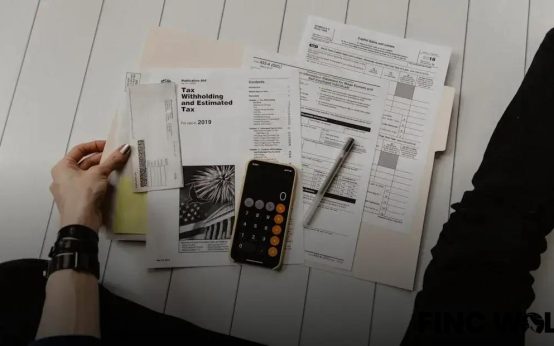Filing taxes as a freelancer or gig worker can be daunting, but understanding your obligations can simplify the process. Start by familiarizing yourself with the self-employment taxes and essential forms you need to submit. This guide will walk you through organizing your finances, exploring deductions, and selecting the right tax software to ensure a smooth filing experience. With the right approach, taxes can become less of a burden.
Understanding Self-Employment Tax Obligations
When you’re self-employed, whether you’re a freelancer, consultant, or gig worker, it’s crucial to understand your tax obligations. Understanding self-employment tax obligations begins with recognizing that these taxes cover both Social Security and Medicare, similar to what employers withhold from regular employee paychecks. However, as a freelancer, you are both the employer and employee, so you pay both portions.
The self-employment tax rate is generally 15.3%, which consists of 12.4% for Social Security and 2.9% for Medicare. However, these rates apply only to net earnings, so it’s essential to accurately calculate your business income minus any expenses to determine these net earnings.
Also, remember that if your net earnings are less than $400, you might not need to pay self-employment tax, but you’ll still need to file a tax return. It’s vital to keep track of all income received and expenses incurred as they directly impact your tax calculations.
To help manage tax obligations throughout the year, consider making quarterly estimated tax payments. These payments, often due on April 15, June 15, September 15, and January 15, help you avoid underpayment penalties. Filing Form 1040-ES allows you to make these payments, ensuring you meet your obligations efficiently.
Additionally, watching for potential deductions, such as home office expenses, office supplies, and internet bills, can significantly reduce your taxable income. Understanding these obligations helps maintain compliance and eases the tax filing process. Consider setting aside a percentage of each payment received for taxes to avoid surprises later.
Essential Tax Forms for Freelancers

Freelancers have unique tax responsibilities that require specific forms to be filled out correctly. Familiarizing yourself with these forms is crucial for accurate tax filing. The primary form that freelancers must use is Form 1040, which is used to report personal income. This is the same for gig workers, and it’s the base for all U.S. citizens.
Another critical form is Schedule C, used for reporting income or loss from a business you operated or a profession you practiced as a sole proprietor. It’s here where you list all your business income and deductible expenses. Accuracy is essential to avoid any complications with the IRS.
For those earning over $400, Schedule SE is necessary to calculate the self-employment tax. This form is critical as it helps freelancers pay into Social Security and Medicare. Not knowing about this form can lead to financial penalties, so ensure it’s filled accurately.
When clients don’t withhold taxes, they usually provide a Form 1099-MISC or the newer Form 1099-NEC. These forms report the income paid to you for services rendered. Cross-referencing these with your records is essential to ensure accuracy.
Moreover, if a freelancer made estimated tax payments throughout the year, those should be recorded on Form 1040-ES. Submitting this form properly helps in managing your quarterly tax payments and avoiding surprises.
Understanding and organizing these tax forms correctly can save freelancers time and stress during tax season. Utilizing comprehensive bookkeeping practices throughout the year will make compiling this information much easier and efficient, ensuring you remain compliant with IRS requirements.
Deductions Available for Gig Workers
Understanding the various deductions available can significantly reduce the tax burden for gig workers and freelancers. Home office deduction is a common one if you use a part of your home exclusively for work. Calculate this by multiplying the square footage of your office space by a specific dollar amount, or use the detailed expenses method for more precision.
Many freelancers overlook the internet and phone expenses deduction. If these services are essential for your work, you can deduct a portion of your monthly bill. Keep a log of your business use to justify this deduction.
Another valuable deduction is the cost of supplies and equipment. From office supplies like pens and paper to essential software subscriptions, these can all be tracked and deducted. Ensure you keep receipts for everything.
Travel and transportation expenses can also be deducted. This includes mileage for work-related journeys or flights for business trips. Keep an accurate mileage log or travel receipts to substantiate this.
For those who attend networking events or workshops, education and training costs can be considered deductible if they enhance your skills in your current business area. Don’t forget to include any related travel and accommodation expenses squarely linked to the training.
Lastly, health insurance is crucial. If you’re paying for your own health insurance, premiums might be eligible for deduction. This can aid in significantly reducing your taxable income.
Organizing Finances for Accurate Tax Filing

Keeping your finances organized is crucial for accurate tax filing, especially for freelancers and gig workers. Start by separating your business and personal expenses. Use a dedicated bank account for business transactions. This makes it easier to track income and expenses without mixing personal finances.
Maintain a consistent record-keeping system. Digital tools like accounting software or apps can help automate this process, ensuring your records are updated and accurate. It’s essential to save all business-related receipts, whether digital or physical, and categorize them properly.
Regularly review your financial statements, like monthly or quarterly, to stay on top of income and expenses. Cross-check these with bank statements to catch any discrepancies early.
Make sure to set aside a percentage of your income for taxes. Since freelancers often face quarterly tax payments, it’s wise to establish a tax savings account. Automating monthly transfers into this account can ensure you’re prepared for tax season.
Finally, maintain organized digital and physical records. It’s helpful to back up digital documents and scan physical documents regularly. Develop a reliable filing system that organizes records by date or category to aid easy retrieval come tax season.
Tips for Choosing the Right Tax Software
Selecting the right tax software is crucial for freelancers and gig workers looking to file taxes quickly and accurately. To make an informed choice, consider your specific tax needs. Some platforms support various self-employment forms, such as Schedule C, while others might lack essential features for freelancers.
Ease of use is another critical factor. The software should have an intuitive interface and clear instructions. Many options offer step-by-step guides or wizards that simplify data entry, helping you avoid costly mistakes.
Integration capabilities are also vital. Quality tax software can sync with common accounting tools like QuickBooks, allowing seamless data transfers and reducing manual entry errors.
Some tax software options provide industry-specific tax optimization tips. Cost considerations shouldn’t be overlooked either; look for packages that fit both your budget and feature requirements. It’s also wise to compare packages and check if they offer customer support, especially if you foresee needing assistance during tax season.
Finally, consider trial versions or free tiers to test the program before committing. Ultimately, the right tax software can save you time and ensure your filing process is as efficient and error-free as possible.
Common Mistakes to Avoid When Filing Taxes

Filing taxes as a freelancer or gig worker can be tricky, and avoiding common mistakes is crucial to ensure a smooth process. One major pitfall to steer clear of is missing deadlines. Freelancers should be aware of quarterly estimated tax payments to avoid penalties. Keeping track of these deadlines can save both time and money.
Another common mistake is incorrectly reporting income. It’s important to meticulously account for all forms of income, whether from full-time freelancing or part-time gigs. Overlooking even small amounts can lead to discrepancies.
Avoid neglecting to claim valid deductions. Gig workers often miss out on potential savings by not fully understanding eligible expenses. Taking time to identify and document deductions like home office expenses, travel, and equipment costs can lower your taxable income significantly.
Many freelancers err in not organizing financial records properly. Use accounting software or tools to maintain clear, up-to-date financial records throughout the year. This organization will make tax filing far easier and more accurate.
Finally, be cautious about using the wrong tax software. With numerous options available, choosing software that caters specifically to freelancers’ needs can simplify the filing process and ensure compliance with tax regulations.





